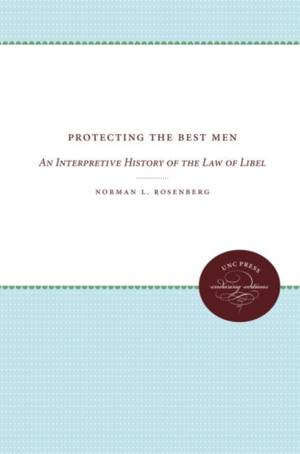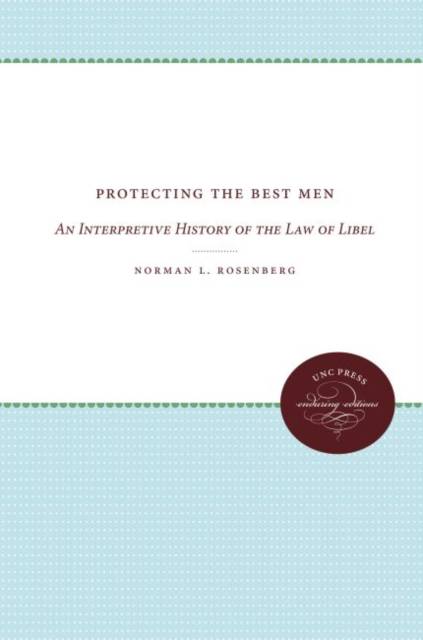
- Afhalen na 1 uur in een winkel met voorraad
- Gratis thuislevering in België vanaf € 30
- Ruim aanbod met 7 miljoen producten
- Afhalen na 1 uur in een winkel met voorraad
- Gratis thuislevering in België vanaf € 30
- Ruim aanbod met 7 miljoen producten
Zoeken
€ 91,95
+ 183 punten
Omschrijving
From the trial of John Peter Zenger in the eighteenth century to the recent libel cases of William Westmoreland and Ariel Sharon, political defamation cases have attracted considerable attention. As Norman Rosenberg shows, cases like these raise fundamental questions about how much criticism of public leaders a supposedly open, liberal society will permit.
Drawing upon a wide variety of historical sources, Protecting the Best Men argues that there exists no natural, evolutionary history of free speech. It also challenges interpretations that rest upon discovering an "original understanding" about the First Amendment. Instead, this interpretive history of the law of libel highlights the complexity and historically rooted nature of legal concepts and legal consciousness in the United States.
Originally published in 1990.
A UNC Press Enduring Edition -- UNC Press Enduring Editions use the latest in digital technology to make available again books from our distinguished backlist that were previously out of print. These editions are published unaltered from the original, and are presented in affordable paperback formats, bringing readers both historical and cultural value.
Drawing upon a wide variety of historical sources, Protecting the Best Men argues that there exists no natural, evolutionary history of free speech. It also challenges interpretations that rest upon discovering an "original understanding" about the First Amendment. Instead, this interpretive history of the law of libel highlights the complexity and historically rooted nature of legal concepts and legal consciousness in the United States.
Originally published in 1990.
A UNC Press Enduring Edition -- UNC Press Enduring Editions use the latest in digital technology to make available again books from our distinguished backlist that were previously out of print. These editions are published unaltered from the original, and are presented in affordable paperback formats, bringing readers both historical and cultural value.
Specificaties
Betrokkenen
- Auteur(s):
- Uitgeverij:
Inhoud
- Aantal bladzijden:
- 380
- Taal:
- Engels
- Reeks:
Eigenschappen
- Productcode (EAN):
- 9780807842904
- Verschijningsdatum:
- 14/09/1990
- Uitvoering:
- Paperback
- Formaat:
- Trade paperback (VS)
- Afmetingen:
- 151 mm x 231 mm
- Gewicht:
- 562 g

Alleen bij Standaard Boekhandel
+ 183 punten op je klantenkaart van Standaard Boekhandel
Beoordelingen
We publiceren alleen reviews die voldoen aan de voorwaarden voor reviews. Bekijk onze voorwaarden voor reviews.











